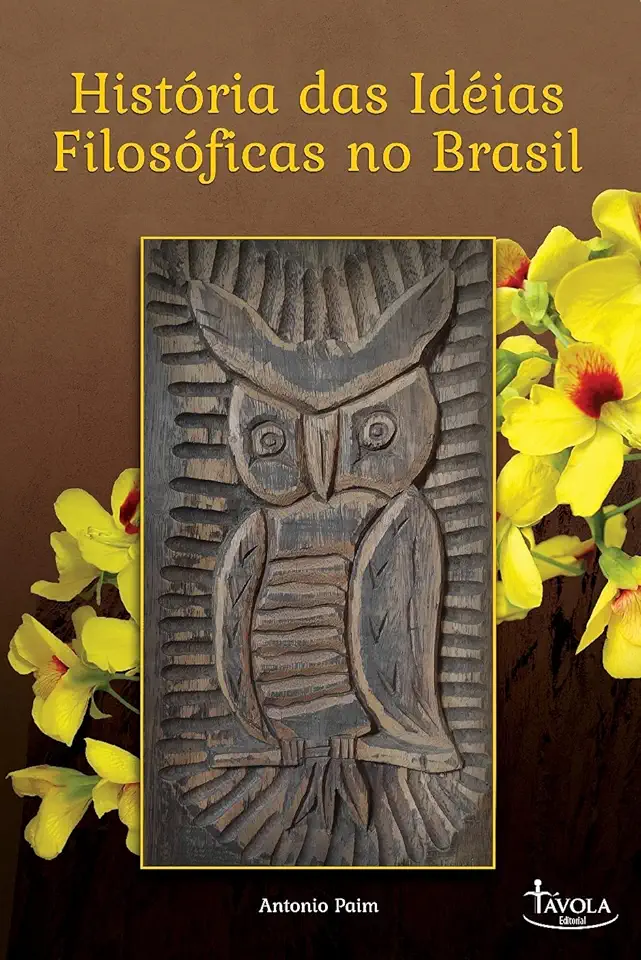
History of Philosophical Ideas in Brazil - Antonio Paim
History of Philosophical Ideas in Brazil
Introduction
Brazil is a country with a rich and diverse history, and its philosophical tradition is no exception. From the early days of colonization to the present, Brazilian thinkers have grappled with a wide range of philosophical issues, from metaphysics and epistemology to ethics and political philosophy.
In this book, Antonio Paim provides a comprehensive overview of the history of philosophical ideas in Brazil. Paim begins by discussing the philosophical thought of the early Portuguese settlers, who brought with them the Scholastic tradition of medieval Europe. He then traces the development of Brazilian philosophy through the colonial period, the Age of Enlightenment, and the 19th century.
In the 20th century, Brazilian philosophy came into its own, with the emergence of a number of important thinkers, including Gilberto Freyre, Paulo Freire, and Leopoldo e Silva. These thinkers helped to shape the course of Brazilian philosophy, and their work continues to be influential today.
The Colonial Period
The philosophical thought of the early Portuguese settlers in Brazil was heavily influenced by the Scholastic tradition of medieval Europe. Scholasticism was a philosophical system that sought to reconcile the teachings of Aristotle with the doctrines of the Christian faith. Scholastic philosophers used reason and logic to defend the existence of God, the immortality of the soul, and the authority of the Church.
One of the most important Scholastic philosophers in Brazil was Padre Antônio Vieira. Vieira was a Jesuit priest who lived in Brazil from 1652 to 1697. He was a prolific writer and orator, and his work had a profound impact on Brazilian thought. Vieira's philosophy was based on the idea that the world is a manifestation of God's love and wisdom. He argued that human beings should strive to live in harmony with nature and with each other.
The Age of Enlightenment
The Age of Enlightenment was a period of intellectual ferment in Europe, and its ideas had a significant impact on Brazilian thought. Enlightenment thinkers rejected the authority of the Church and the aristocracy, and they emphasized the importance of reason and individual liberty.
One of the most important Enlightenment thinkers in Brazil was José Bonifácio de Andrada e Silva. Andrada e Silva was a lawyer, statesman, and philosopher who played a leading role in the Brazilian independence movement. He was a strong advocate for democracy and individual rights, and his work helped to shape the political philosophy of Brazil.
The 19th Century
The 19th century was a time of great change in Brazil. The country gained its independence from Portugal in 1822, and it began to develop its own unique identity. Brazilian philosophers of the 19th century grappled with a wide range of issues, including the nature of Brazilian identity, the relationship between Brazil and Europe, and the future of democracy in Brazil.
One of the most important Brazilian philosophers of the 19th century was Tobias Barreto. Barreto was a lawyer, journalist, and philosopher who is considered to be one of the founders of Brazilian philosophy. He was a strong advocate for Brazilian nationalism, and he argued that Brazil should develop its own unique culture and philosophy.
The 20th Century
The 20th century was a time of great intellectual ferment in Brazil. A number of important thinkers emerged, including Gilberto Freyre, Paulo Freire, and Leopoldo e Silva. These thinkers helped to shape the course of Brazilian philosophy, and their work continues to be influential today.
Gilberto Freyre was a sociologist and anthropologist who is considered to be one of the most important Brazilian thinkers of the 20th century. Freyre's work focused on the role of race and culture in Brazilian society. He argued that Brazil is a unique country because of its racial and cultural diversity.
Paulo Freire was a philosopher and educator who is considered to be one of the most important thinkers in the field of education. Freire's work focused on the importance of dialogue and critical thinking in education. He argued that education should be a process of liberation, and that it should help people to develop their own critical consciousness.
Leopoldo e Silva was a philosopher and theologian who is considered to be one of the most important Brazilian thinkers of the 20th century. Silva's work focused on the relationship between philosophy and religion. He argued that philosophy and religion are complementary, and that they can help people to understand the world in a more profound way.
Conclusion
The history of philosophical ideas in Brazil is a rich and diverse one. Brazilian thinkers have grappled with a wide range of philosophical issues, and their work has helped to shape the course of Brazilian thought. This book provides a comprehensive overview of the history of philosophical ideas in Brazil, and it is an essential resource for anyone interested in Brazilian philosophy.